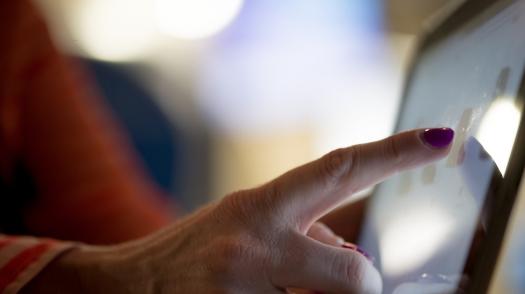Our teenage years can be a time of struggle for any of us. As our hormones bring about massive change in our bodies, there is also a great deal of upheaval in our personal lives.
Young people are making decisions about their future, sometimes for the first time in their lives. They may also be under different kinds of social pressure, and it’s in these formative years that drugs, alcohol and sexuality may become things young people need to think about.
In short, our teenage years are when we make some of our most important steps towards adulthood. An acquired brain injury can make these difficult choices that little bit more complex.
Deciding whether or not to stay on in full-time education is a big decision for most teenagers. But for a young person with an acquired brain injury, there may be other things to consider.1
On a very practical level, a young person with an acquired brain injury may start to access adult services during their teenage years.2 This is a shift in itself.
As well as these practical things, there is an emotional aspect to consider. We are at our most self-conscious when we’re teenagers. Most young people are keen to ‘fit in’ and social situations may be difficult for some children with an acquired brain injury.3, 4
They may be anxious about the effects of their injury on taking part in sport, socialising or dating.5 Some young people with an acquired brain injury may feel ‘out on a limb’ and distant from people their own age. This in turn can make parents feel anxious, as their son or daughter heads out into the world under their own steam.6
Michael went back to school and found himself very isolated. In all honesty, he’s more comfortable around younger children than he is with his peers."Parent's experience
Education post 16
All young people face tough decisions as they think about whether or not to stay on at school. If they do, there may be questions about what qualifications and subjects are going to suit them.
If a young person has a statement of Special Education Needs, then the annual review in year nine is particularly important.7
There are a range of options ahead of a young person after 16. Depending on their interests and abilities, they can stay on at a mainstream school.
If there is a relevant curriculum for them, they may be able to stay on at a special school. Alternatively, they might want to move on to a college of further education or some form of work-based training.
Lots of schools have developed ‘link’ courses with local colleges, so pupils in their last years at school can go to college on a part-time basis. This can be a good way of ‘testing the water’, by preparing young people for further education and giving them the chance to sample new subjects that might interest them.
No. The local careers service can carry out these assessments for other young people with special educational needs who want to go on to further education or training. They will work with further education colleges and training providers to make sure the young person gets the help they need.
What about university?
Universities and colleges of higher education offer education beyond A levels, AS levels or NVQs from the age of 18. It is open to all young people who have the required qualifications to be accepted by an institution. Different universities will have very different entry requirements.
Sexuality and relationships
Our teenage years are when our sexuality emerges more rapidly. The rush of feelings and urges can be overwhelming for many teenagers. And it’s complicated by social situations and pressures.
Many young people with acquired brain injury are no different from the youngsters around them in feeling pressure to develop relationships with a boyfriend, girlfriend or partner.8
Many young people want to fit in, but understandably, parents may feel protective and concerned for their children. There are some young people with an acquired brain injury who may be vulnerable, and this may cause genuine distress to parents.4
Some children and young people with acquired brain injury struggle to understand ‘cause and effect’ relationships (if I do X, then Y will happen). This may make it difficult to make informed decisions.
We also know that judgment and the ability to make decisions can be affected.9 A young person with an acquired brain injury can also act impulsively. They may not think things through.10
So if a young person experiences some or all of the effects mentioned above, they may not be able to make sound judgments about sex and relationships.
It is Important to note, however, is that this will not be the case for all young people with acquired brain injury. Many are capable of, and are entitled to, the same relationships all young people have.
Talking about sex is rarely easy, but communication is key here. Some parents may feel their child’s change in circumstances makes talking about sex irrelevant. Some might worry about “giving them ideas” in talking through some of the issues.11 But – as with all young people – education about sex is extremely important. Young people may need information about what sex involves on a physical level, and contraception.12
What can parents do to help?
The differences in circumstances make it difficult to offer any hard and fast rules. But there are some approaches that may help with the organisational side of things. If a young person or child struggles with memory or planning, then going over the steps with them can help. Sometimes, prompt sheets can help, setting out these individual steps.
Moving to adult services
As young people move towards greater independence through education, work and their personal lives, part of this transition is about them taking responsibility for their own health.
In theory, young people should move from paediatric to adult wards at 16 years. And in other circumstances, the move to adult services should take place at 18 years.
The Transition Information Network is a website for people who support disabled young people in transition to adulthood. It provides information about the transition process that is of use to parents, carers, and professionals. There is also a section for young people that talks about the transition process and gives links to helpful resources.
Another resource for those over the age of 18 with an acquired or traumatic brain injury, and their families, is Headway, which has local support services across the country. If, like us, you’re based in Surrey, see the Headway Surrey website for more information.


